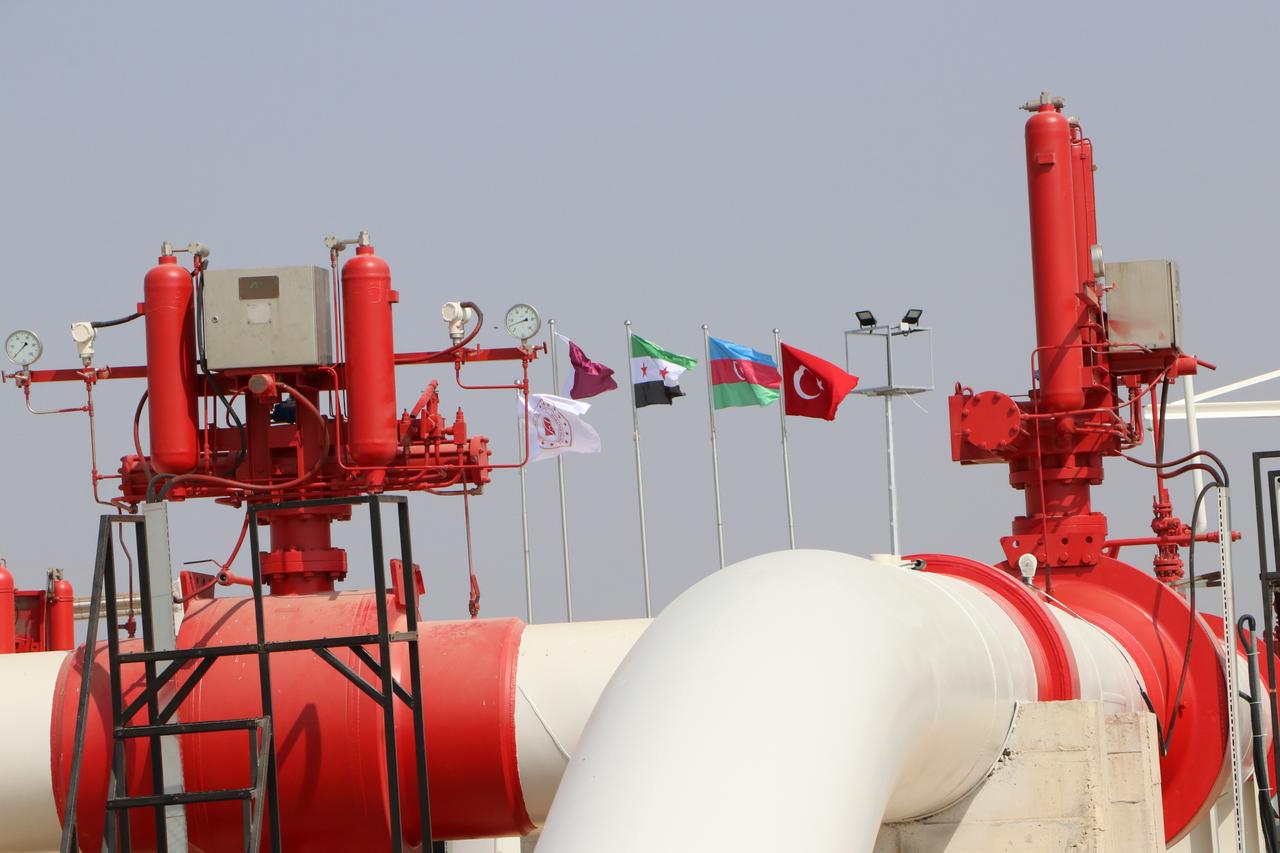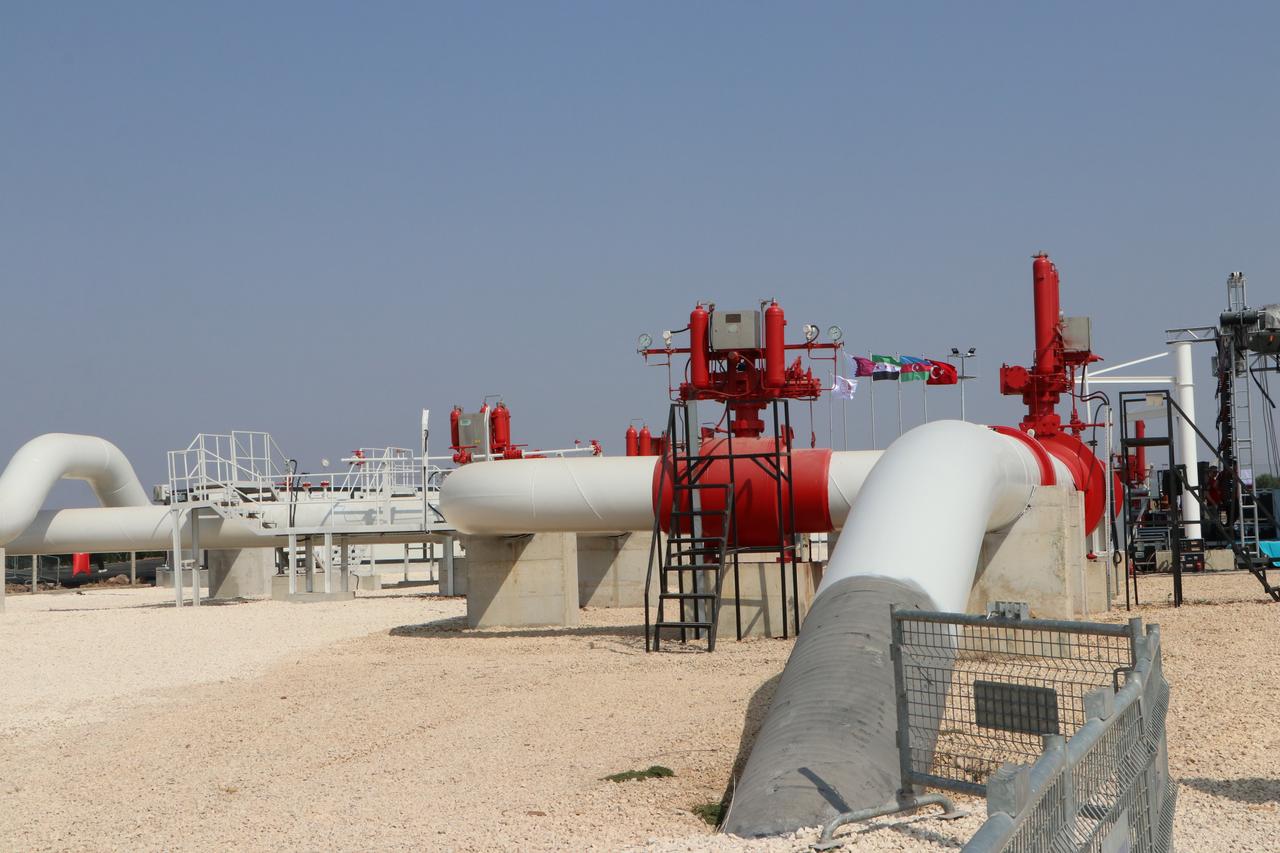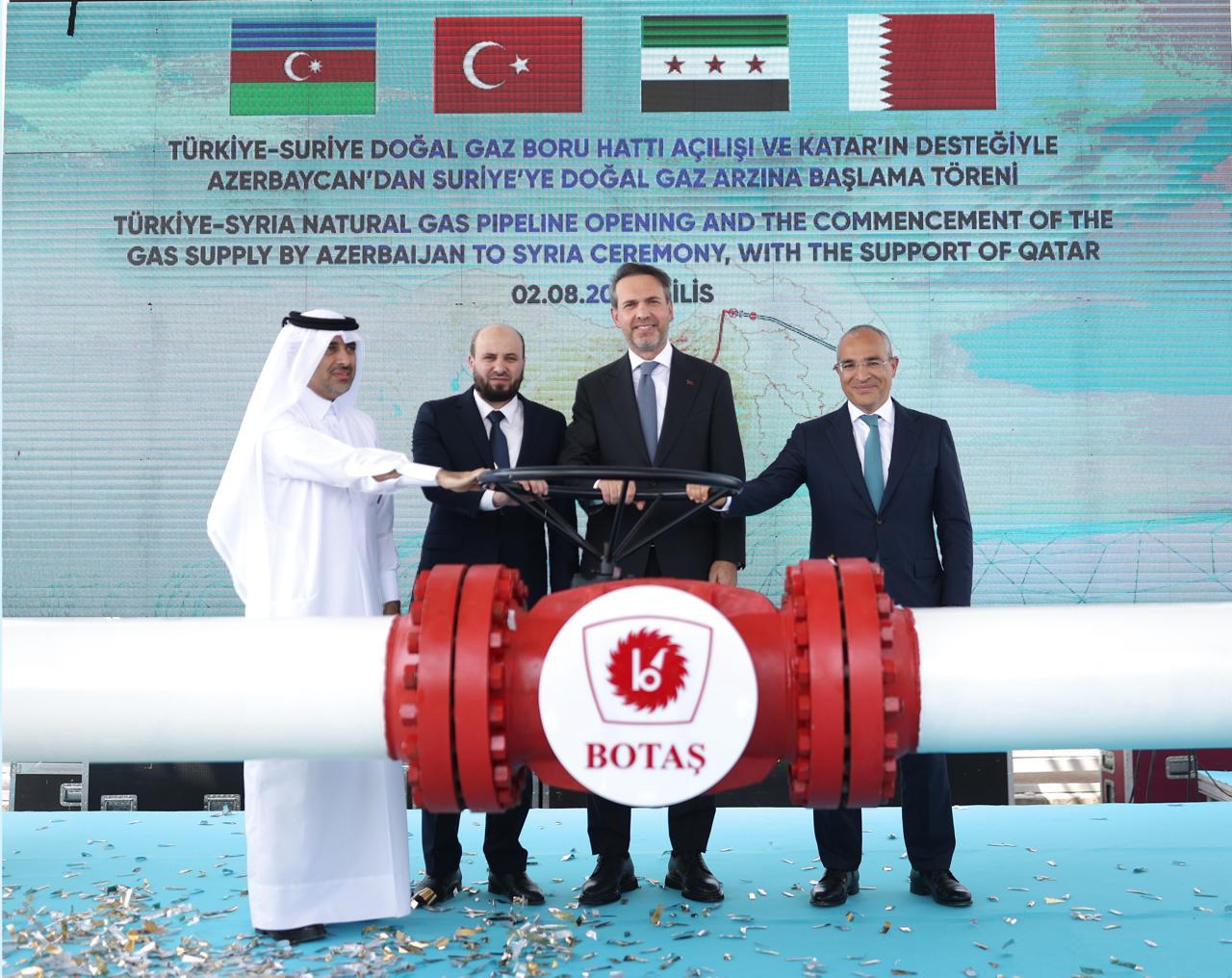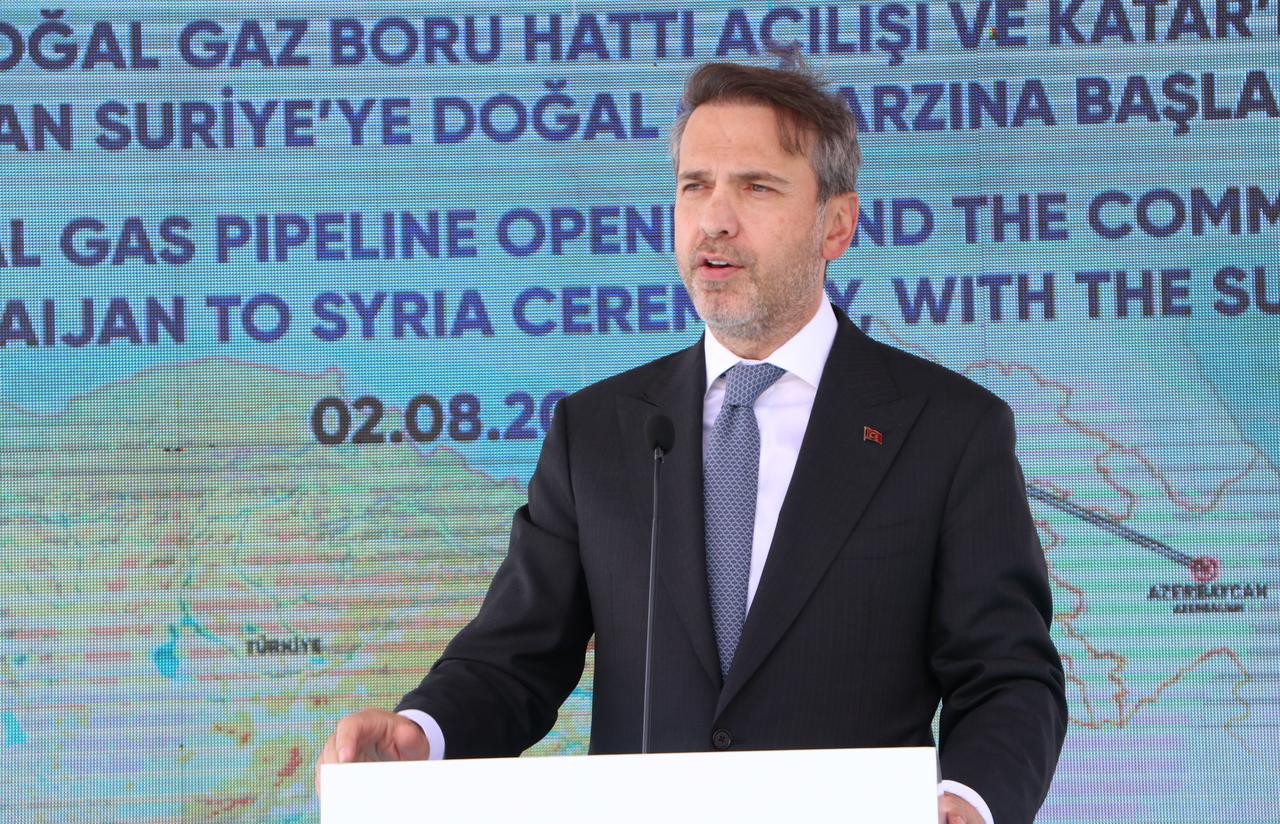
Türkiye, Azerbaijan, Qatar and Syria issued a joint statement Saturday marking the launch of the Türkiye-Syria Natural Gas Pipeline, with first gas shipments from Azerbaijan beginning to flow to Syria through the newly operational infrastructure.
The pipeline, which officially began operations Aug. 2, connects Türkiye's Kilis province with Syria's Aleppo and has a daily capacity of 6 million cubic meters, according to a statement from Türkiye's Energy and Natural Resources Ministry posted Saturday on social media platform X.
The four nations described the pipeline as an important step in deepening ties and providing vital support to Syria's post-conflict reconstruction and normalization process following historic developments in December 2024.
"We are honored to jointly announce the opening of this pipeline, a symbol of regional solidarity, and the start of natural gas supply from Azerbaijan to Syria," the joint statement said.
The project was implemented in record time following the collapse of Syria's Baath regime in December 2024, marking a critical phase in the country's rebuilding efforts after years of civil war that began in 2011.
Qatar reaffirmed its commitment to Syria's recovery through the Qatar Development Fund, supporting electricity generation as part of the initiative.
"With the start of natural gas flow to the Aleppo Power Plant, electricity supply in Syria will increase significantly," the statement noted.
The countries emphasized the humanitarian impact of the initiative, stating it would directly contribute to reviving Syria's economy and improving living conditions for its people.

The joint statement underscored the nations' determination to strengthen peace, stability and prosperity in the region.
"Our commitment continues to building a future based on cooperation, not divisions, where the peoples of the region will benefit together from the blessings of security, development and mutual trust," the countries stated.

Turkish Energy and Natural Resources Minister Alparslan Bayraktar, speaking at the pipeline's inauguration, said up to 2 billion cubic meters of natural gas can be exported annually to Syria, generating electricity to power 5 million households.
"We will transport natural gas to Aleppo and from there to Homs. This will allow the power plants in the area to start operating soon," Bayraktar said.
The natural gas connection from Kilis to Aleppo was completed May 21 through the restoration of damaged pipelines.
Bayraktar also announced that electricity exports to Syria currently flow through eight points, with capacity set to increase by 25 percent initially and then more than double.
Syria's energy infrastructure suffered extensive damage during the civil war, with power generation facilities, transmission lines and natural gas systems heavily damaged, reducing daily electricity supply in many regions to just 3-4 hours.

The inauguration ceremony was attended by Syria's Energy Minister Mohammad Al-Bashir, Azerbaijan's Economy Minister Mikayil Jabbarov, and Fahad Hamad Al-Sulaiti, president of the Qatar Development Fund.
Bayraktar said Türkiye signed a swap agreement with SOCAR, Azerbaijan's state-owned oil and gas company, to deliver gas at the Türkiye-Syria border.
"Today, together with Azerbaijan's Economy Minister Mikayil Jabbarov, we inaugurate this new project under the motto 'two states, one nation,'" he said.
The Turkish energy minister thanked Qatar for its strong support, noting that relations between the two nations have deepened in all areas, citing the 2014 launch of the High Strategic Committee as a key step in strengthening cooperation.
Türkiye's ruling Justice and Development Party (AK Party) Deputy Chairman and Party Spokesperson Omer Celik commented Saturday on the pipeline's significance, stating it demonstrates Türkiye's important vision for ensuring stability and security in its region.
"Today's vision, the implementation of the natural gas pipeline, shows how important a vision Türkiye has in terms of ensuring stability and security in its own region," Celik said.
He recalled that President Recep Tayyip Erdogan had proposed reforms to the Assad administration when events began in Syria, even sending delegations from the state planning organization to facilitate these reforms.
Celik pointed out that the administration at that time did not appreciate the value of President Erdogan's vision.
"Unfortunately, they signed on to that massacre policy for many years. At the end of the day, all those who signed on to these massacres are now facing their own fate in a very shameful way, all those who carried out these massacres are now alone with their own destiny. There is a new administration in Syria," Celik said.
Celik stated that the gas from Azerbaijan being transferred to Syria through Türkiye represents a crucial vision for helping Syria's destroyed and damaged infrastructure and social life recover.
"President Erdogan has implemented major policies over the years aimed at making Türkiye not just a transit point for energy, but the center of energy policy. Türkiye has strengthened over these years not just as a transit point for energy, but as the central country of energy policy," Celik said.
"While some major powers in this region try to destabilize everything through proxy wars, it is clearly seen that Türkiye is pursuing stability in its neighbors," he added.